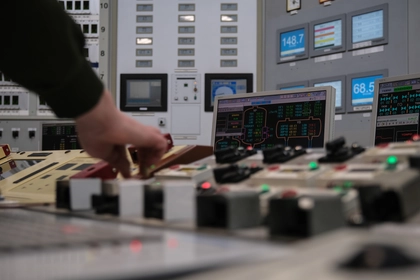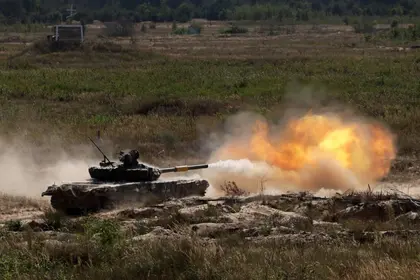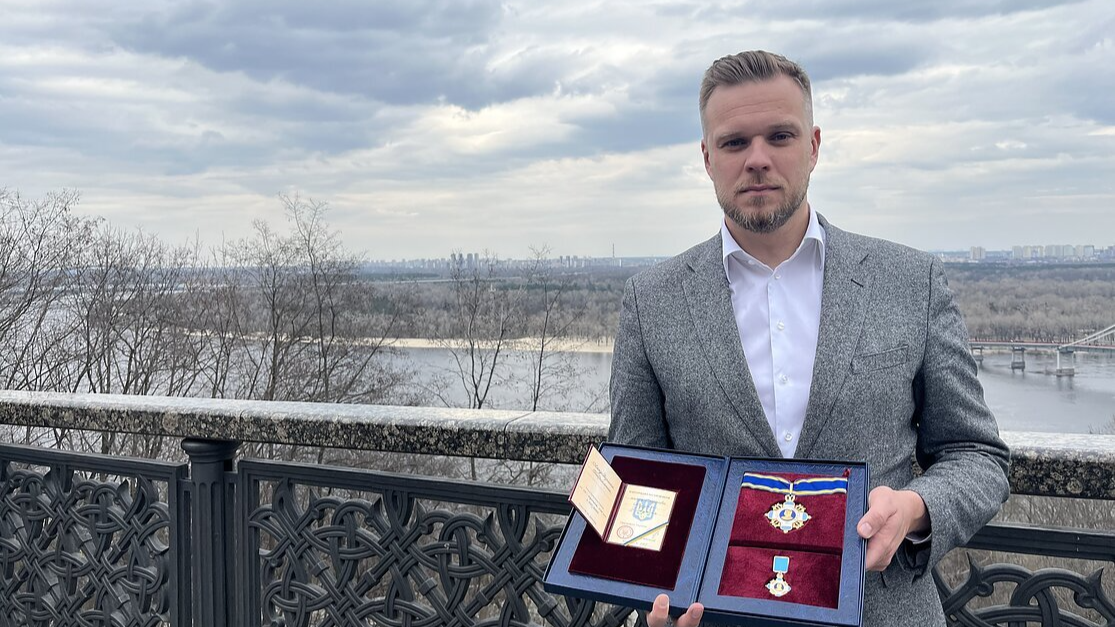Some Republican leaders in Washington have been expressing concern this week that their presidential nominee, Donald Trump, is veering away from centrist conservative opinions on national security, especially as concerns Ukraine.
One Republican senator told The Hill on condition of anonymity that “it’s a big question” whether Trump will continue the US support for Ukraine’s fight to keep its sovereignty.
JOIN US ON TELEGRAM
Follow our coverage of the war on the @Kyivpost_official.
“I don’t think he desires to be in conflict or to pay for conflicts around the world,” the senator said. “There’s no question where JD Vance is,” he added, in reference to Trump’s pick for vice president, who famously said this year that he “really doesn’t care” what happens to Ukraine.
Republican worries about Trump’s thus-far unspecified platform on assistance to Kyiv started to build when the former president invited Hungarian Prime Minister Viktor Orban to his ostentatious modern complex in Florida in mid-July.
Orban, who has solidified his reputation as a stalwart Kremlin ally, flew to Trump’s resort directly from the NATO summit in Washington, a highly unusual gesture from a head of state, visiting only the political opponent of a host country’s leader. The two right-wing populists reportedly discussed US national security issues, particularly Ukraine.
But it’s Trump’s selection of the isolationist Ohio senator as his running mate that has more moderate conservatives most concerned.

Nuclear Power Plants Save Workers as Russian Bombings Intensify
Senate Minority Leader Mitch McConnell said he’d be voting for the Trump-Vance ticket, but “I also support Ukraine, and I’m going to be arguing, no matter who gets elected president” to continue American commitments to Kyiv.
“It’s not just Ukraine, we’ve got worldwide organized authoritarian regimes talking to each other — China, North Korea, Russia, Iran and Iran’s proxies... This is the single largest problem facing the democratic world, no matter who wins the election. And that’s what I’m going to be working on the next couple years.”
McConnell called Orban “the one member of NATO who’s essentially turned his country over to the Chinese and the Russians.”
If a recent poll by Pew Research is any indication, a large portion of Republicans believe that Washington is spending too much in support of Ukraine.
The survey found that 47 percent of those identifying as Republican voters said the US is providing too much aid to Kyiv, while 18 percent said current aid levels are about right, and 12 percent believed Washington is providing too little.
However, in poll results for all US voters — Democratic, Republican and independent, only 29 percent of respondents said that the US has been too generous to Kyiv, and nearly 70 percent said that America should be keeping up the pressure on Russia via economic sanctions.
Of the 22 Republican senators who voted in favor of the latest $61 billion aid bill, those who have provided the most vocal support of Ukraine include: McConnell (Kentucky), John Cornyn (Texas), Mitt Romney (Utah), Susan Collins (Maine), and both senators from Alaska, Lisa Murkowski and Dan Sullivan.
Cornyn is mounting a campaign to replace McConnell as his party’s senate leader when the latter steps down and is now leading his rivals in fundraising.
Cornyn drives record fundraising as Senate leader race to succeed McConnell draws near https://t.co/vVkdzBy9nA#US #Newyork #Kansas #Russia #Ukraine#news #breakingnews #worldnews #politics #usnews #covid19 #coronavirus #vaccine #climatechange #election2024
— IKIGENI NEWS (@ikigeninews) July 29, 2024
Zelensky says critical losses on the Pokrovsk front are due to manpower shortages
On Thursday, President Volodymyr Zelensky called attention to military losses in the Pokrovsk vicinity in recent days, attributing them to shortages of troops deployed to that front in the Donetsk region, and identified the Russian surge there as a “top priority” for Moscow.
Western media reports on Wednesday and Thursday ominously warned of eastern villages in Donetsk falling into the hands of the Kremlin, “sending locals fleeing.” They singled out the village of Lozuvatske, noting that its capture will cause problems in Ukraine’s supply routes to the area.
That village is in the Kostiantynivka sector, which, along with Kramatorsk and Sloviansk, “form the backbone of Ukraine’s defenses of the region, which is why any progress of Russian troops toward Kostiantynivka is worrying,” CNN wrote, citing analysis from the Institute for the Study of War (ISW).
ISW analysts similarly reported on Thursday that “Russian forces are currently able to advance in certain areas of the front because Ukraine is still struggling with manpower shortages and challenges in properly staffing and equipping new brigades. Zelensky observed that some Ukrainian brigades are unable to conduct rotations because their replacement brigades are not yet staffed or equipped, which creates exploitable weaknesses that Russian forces can attack.”
Ukrainian military observer Kostyantyn Mashovets was cited by the ISW as saying that “Ukrainian defenders in the Pokrovsk [sector] have inferior equipment and defensive means and are therefore currently unable to slow Russian advances. Delays in the provision of Western and especially US military assistance have contributed to delays in equipping newly raised Ukrainian units and re-equipping those that have been fighting.”
Mashovets predicted that Russian forces are close to achieving an “operationally significant breakthrough” in the Pokrovsk area by the end of this month.
Families in Pokrovsk are being forced to evacuate their homes as Russian forces attack communities in the eastern Donetsk region. People are heading to western Ukraine in search of safety and WCK teams are providing meals, fruit, and water to help make the journey easier.… pic.twitter.com/69QasKDpXl
— World Central Kitchen (@WCKitchen) August 1, 2024
Ukraine to add to list of bilateral security agreements on Friday, Zelensky says
Also on Thursday, Zelensky cryptically announced that Ukraine was poised to sign bilateral security agreements with another European country on Friday, although he did not specify which one.
“We are working on agreements that will be signed this August. This includes security agreements; for example, tomorrow we will launch negotiations with another European country,” he said, almost as a teaser, in a video address to the nation.
“It’s particularly important to ensure our country’s stability for years to come. This can serve to provide us with more opportunities right now, this year, in light of the existing threats and challenges,” the president said.
This year, Ukraine has inked about a dozen security agreements with other nations, including the US, the UK, Lithuania, Czechia, Germany, France, Denmark, Canada, Italy, the Netherlands, Finland, and Latvia. Negotiations are ongoing with several others to sign similar accords. Each of the agreements lays out assurances that those countries will support Ukraine militarily for the next 10 years or until it joins NATO.
The contracts typically include an initial pledge of financial support in 2024 for Ukraine’s war effort: €7 billion ($7.6 billion) from Germany and €3 billion ($3.2 billion) from France, for example.
In his address the night before, Zelensky thanked the US for its latest package.
“I extend my gratitude to the United States for announcing a new support package that includes, among other things, NASAMS air defense missiles, which are always in high demand, as well as ammunition for HIMARS, Javelins,” he said.
Today, I held a meeting with the Prime Minister, Denys Shmyhal, regarding recovery efforts. The government is preparing additional measures to ensure that more Ukrainian children can attend school in person this autumn, rather than online, so they can experience normal school… pic.twitter.com/rgbqhEaha7
— Volodymyr Zelenskyy / Володимир Зеленський (@ZelenskyyUa) August 1, 2024
You can also highlight the text and press Ctrl + Enter









